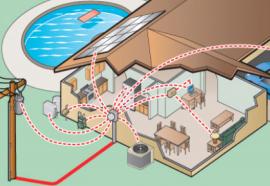Snake Oil & Smart Meters
Customers deserve the straight truth about electricity costs.
The utility industry faces the difficult task of trying to educate the general public about the realities of delivering electricity service in the 21st century. California’s recent experience trying to put smart thermostats into the state’s building code provides a cautionary example.





